Articles
- Page Path
- HOME > J Korean Acad Nurs > Volume 38(1); 2008 > Article
-
Original Article
- Development and Evaluation of an e-Learning Program for Mothers of Premature Infants
- Nae-Young Lee, Young-Hae Kim
-
Journal of Korean Academy of Nursing 2008;38(1):152-160.
DOI: https://doi.org/10.4040/jkan.2008.38.1.152
Published online: February 28, 2008
1Instructor, College of Nursing, Pusan National University, Busan, Korea.
2Professor, College of Nursing, Pusan National University, Busan, Korea.
- Address reprint requests to: Kim, Young-Hae. College of Nursing, Pusan National University, 1-10 Ami-dong, Seo-gu, Busan 602-739, Korea. Tel: 82-51-240-7752, Fax: 82-51-248-2689, ungaekim@pusan.ac.kr
• Received: September 18, 2007 • Accepted: December 19, 2007
Copyright © 2008 Korean Society of Nursing Science
Figure & Data
REFERENCES
Citations
Citations to this article as recorded by 

- The effect of an emotional support training program on acute stress disorder among mothers of preterm infants hospitalized in neonatal intensive care units
Dua'a F. Al-Maghaireh, Inaam A. Khalaf, Khatijah Lim Abdullah, Chong Mei Chan, Niven R. Basyoun, Mariam M. Kawafha
Journal of Neonatal Nursing.2020; 26(5): 273. CrossRef - A Smart Phone Application for the Mothers of Premature Infants
A. Nourani, H. Ayatollahi, K. Mirnia
IRBM.2019; 40(5): 263. CrossRef - Development of Pre-discharge Group Education Program for Liver Transplant Patients
Ji Seon Yun, Kyung Choon Lim, Jae Sim Jeong, Hea Seon Ha, Jung Ja Hong, Soon Haeng Lee, Lee Young Kim, Yeon Hee Kim, Shin Hwang
Korean Journal of Transplantation.2017; 31(1): 34. CrossRef - Integrative Review on Caring Education Papers for Parents with a Premature Infant.
Mihae Im, Jina Oh
Child Health Nursing Research.2013; 19(2): 120. CrossRef - Development and Evaluation of a Video Discharge Education Program focusing on Mother-infant Interaction for Mothers of Premature Infants
Jin Suk Ra, Jiyoung Lim
Journal of Korean Academy of Nursing.2012; 42(7): 936. CrossRef - Construction a Website for Premature Infant - Based on the Survey of Previous Homepages -
In Hae Lee
Journal of Korean Academy of Child Health Nursing.2009; 15(2): 210. CrossRef
Development and Evaluation of an e-Learning Program for Mothers of Premature Infants
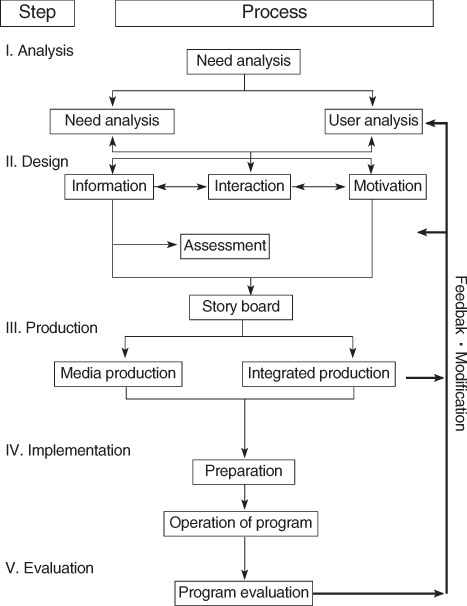
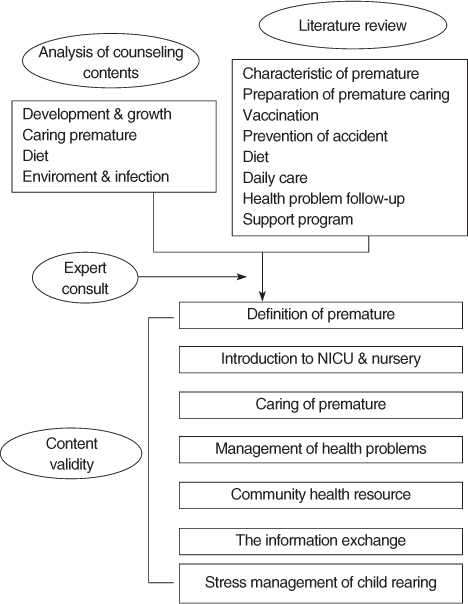
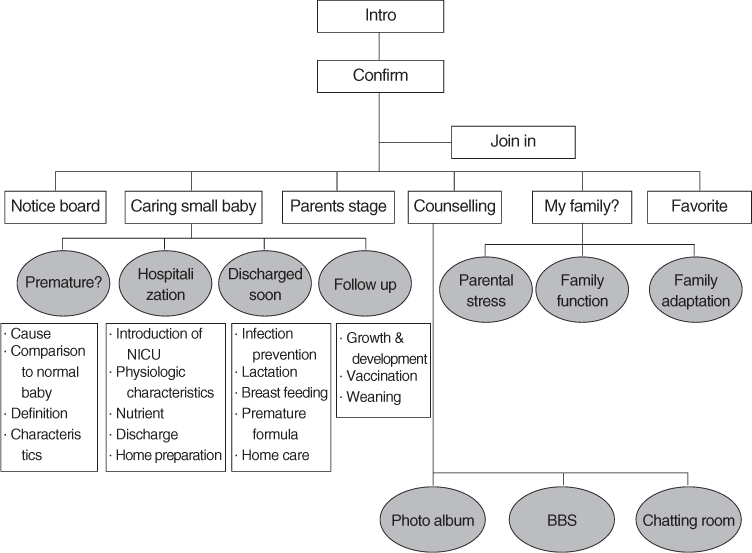
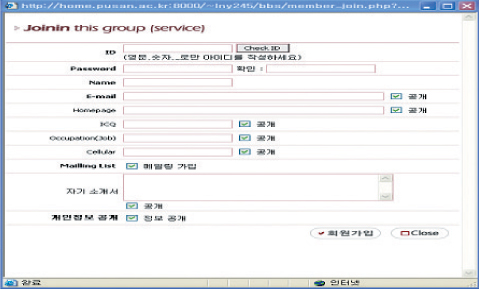
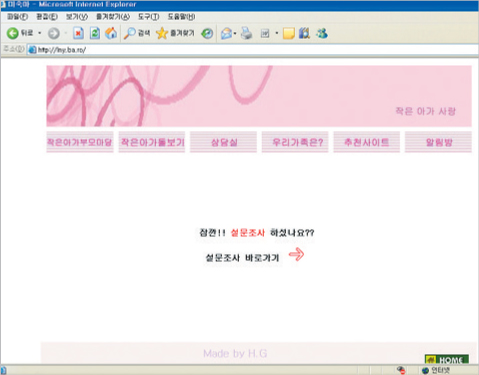
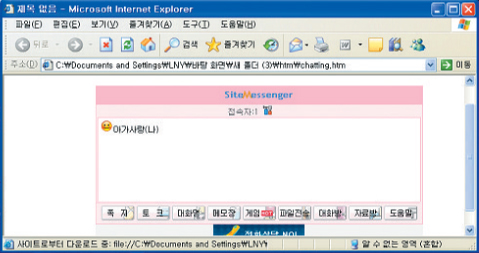
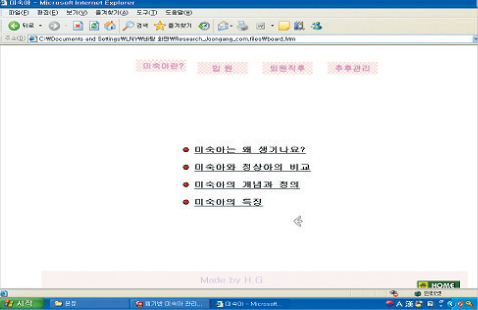
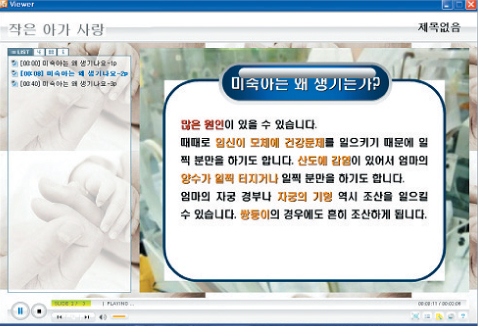
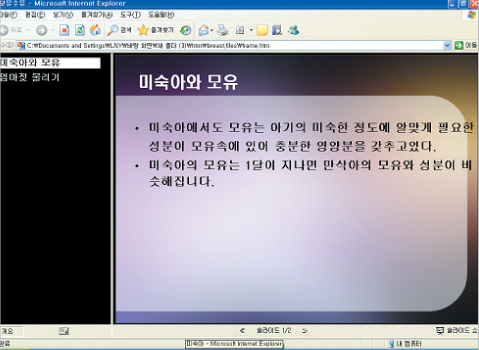
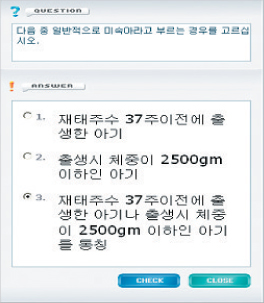
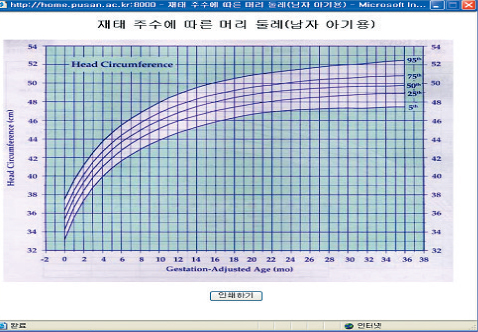
Figure 1
The model for procedure in web based premature infant care program.
Figure 2
Analysis of contents.
Figure 3
Structure of the program.
Figure 4
Page of create an account.
Figure 5
Main page.
Figure 6
Chatting room.
Figure 7
Caring of small baby.
Figure 8
Subcontents page.
Figure 9
Subcontents page.
Figure 10
Self-examination.
Figure 11
Print page of growth charts.
Figure 1
Figure 2
Figure 3
Figure 4
Figure 5
Figure 6
Figure 7
Figure 8
Figure 9
Figure 10
Figure 11
Development and Evaluation of an e-Learning Program for Mothers of Premature Infants
Content Validity of the Program
Program Evaluation
Table 1
Content Validity of the Program
Table 2
Program Evaluation
 KSNS
KSNS
 E-SUBMISSION
E-SUBMISSION











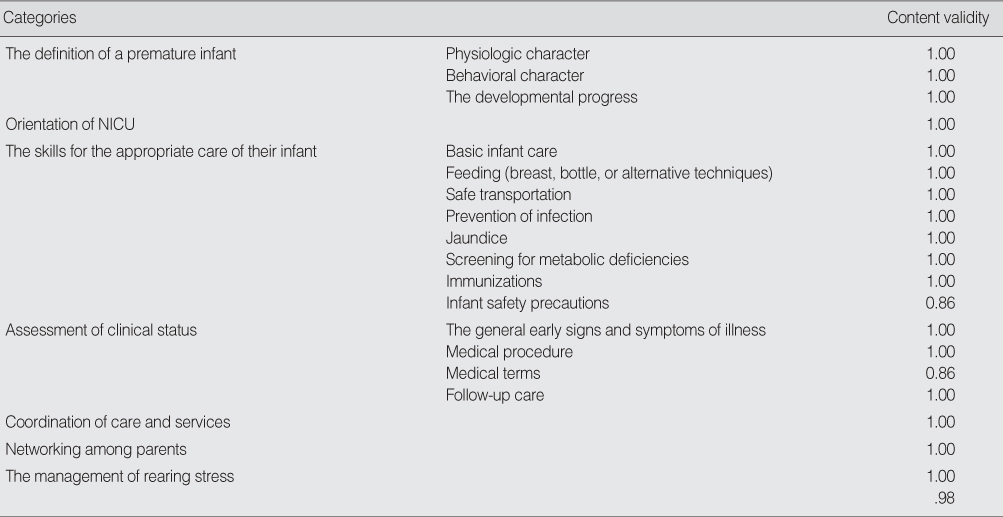
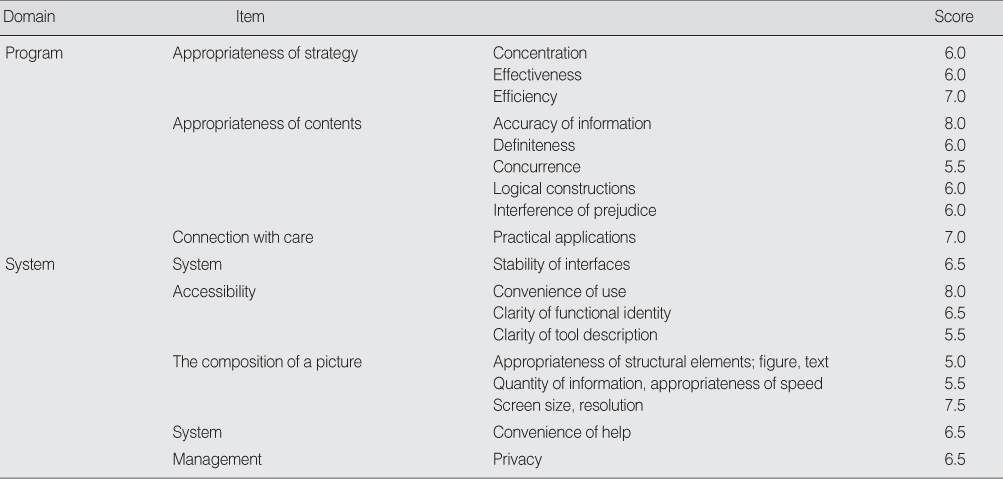
 Cite
Cite

